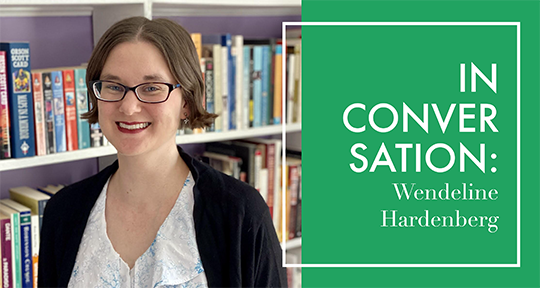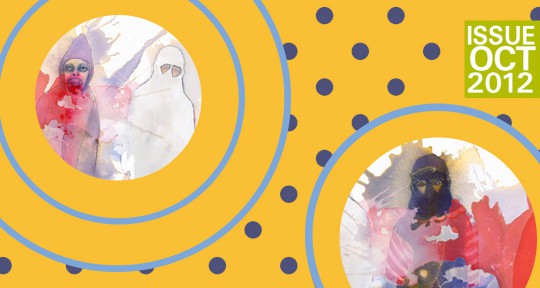A frequent contributor whose thrilling rendition of Gwenaëlle Aubry’s La Folie Elisa recently appeared in Asymptote’s Spring 2024 edition, Wendeline Hardenberg translates contemporary French literature across a spread of genres—from the aforementioned prose to Marie-Claire Bancquart’s poetry, children’s books, and even genre fiction by authors such as Jacques Vandroux. In the following conversation, conducted via email, Wendeline spoke to Assistant Interview Editor Sarah Gear about the challenges and pleasures of translating across the literary spectrum, bookshops as a source of inspiration, establishing her career as a translator, and her ‘Oulipian’ approach to language-learning.
Sarah Gear (SG): What led you to literary translation?
Wendeline Hardenberg (WH): During my first year of college, I was for some reason already thinking about what I might do for an honors thesis later on, and my first idea (I was a Comparative Literature major) was to write a piece of short fiction in English and then translate it into French. I was taking a course called “The Novel Now” that semester, and I brought this idea to the English professor who taught the course. He told me that they didn’t do “creative theses” at Smith. I was a bit deflated, but I immediately decided that meant I had to find someone else’s French text to translate into English instead, and I made that my mission while studying abroad in France during my junior year. Even though at the time there was no Translation Studies concentration at Smith as there is now, the department was supportive of my project and connected me with Nicole Ball, who had taught me French in my first semester and turned out to be a translator herself, as my thesis advisor. It’s hard to say where this intense desire to translate came from in the first place, though I think it may have something to do with my lifelong fondness for words, and my youthful sense that learning more languages meant more opportunities to play with them.
SG: How do you choose the texts you translate?
WH: Many of my translation projects have been chosen by other people, which is unfortunately the best way to make any money. When I’m choosing texts myself, though, I’m always looking for something that I actually want to read, which tends to lead to idiosyncratic and serendipitous choices. My favorite thing to do is to physically browse bookstores in foreign countries and look for what catches my eye. I discovered Vincent Ravalec in 2004 because I saw a bright green book with my name on it (Wendy ou les secrets de Polichinelle) from across the room at the Tschann Librairie in Paris. My relationship with Gwenaëlle Aubry is entirely because I spotted her Perséphone 2014 (with its first chapter numbered 0 and a totally black page two thirds of the way through) in the FNAC at Les Halles in 2016. It’s hard to know in advance whether the things you like will be things that publishers and readers also like, but nothing beats working on the translation of a text that you personally enjoy. READ MORE…


